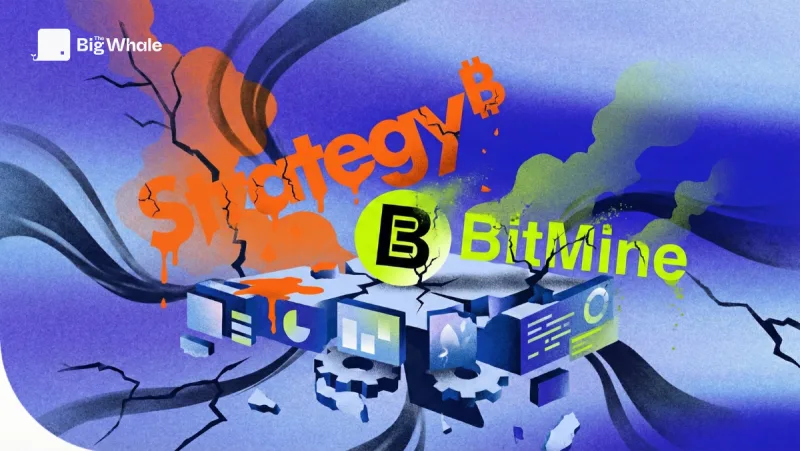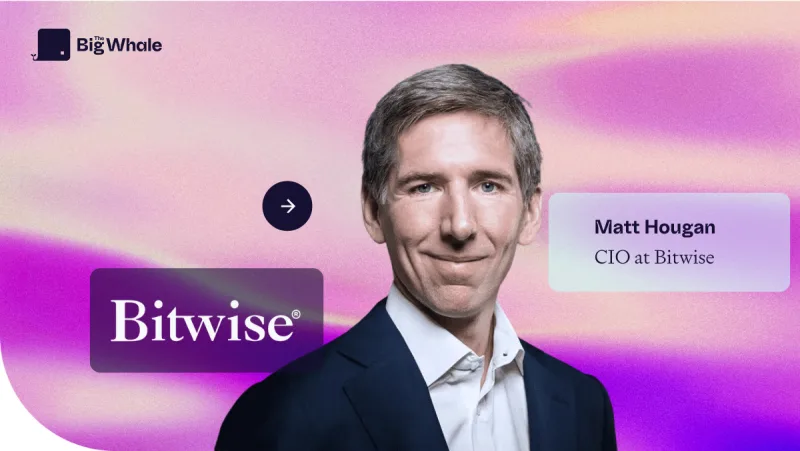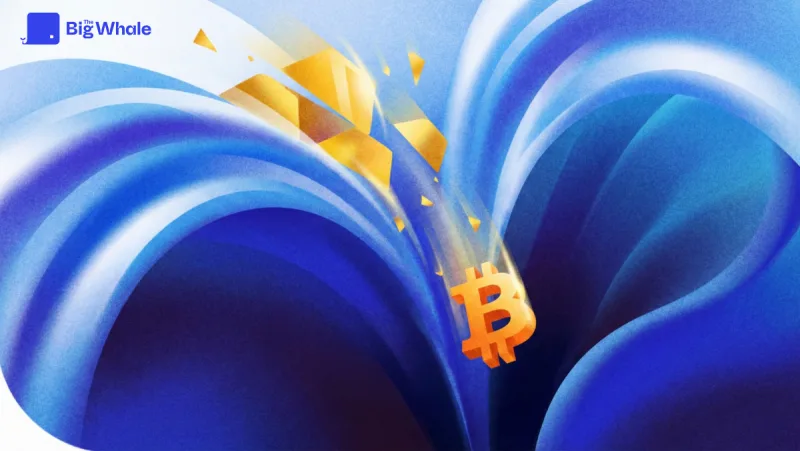TBW - With Horizon, Aave plays its institutional card once again

Aave Labs has just proposed the creation of "Horizon", an ambitious initiative designed to open up the decentralised finance (DeFi) ecosystem to real-world assets, better known by the acronym RWA (Real-World Assets). The stated aim is to build a bridge between traditional finance and the onchain universe, by offering products tailored to financial institutions.
With Horizon, Aave Labs aims to facilitate the institutional adoption of DeFi by gradually integrating assets such as bonds, real estate or tokenised bills.
For the team behind the decentralised lending protocol, one conviction guides this strategy: eventually, all financial assets will be represented onchain, with DeFi set to become the basic infrastructure of global finance.
The Horizon project comes 4 years after the failure of Aave Arc, a permissioned version of Aave that never found its audience.
>> Uniswap, Aave, Sky: What strategies for the "OGs of DeFi"?
What's the goal with Horizon?
In its latest governance proposal, Aave Labs makes a lucid observation: the open architecture of decentralised finance (DeFi) is not enough on its own to win over institutions.
At issue is the lack of robust compliance, governance and risk management frameworks. As a result, institutional participation remains timid, and large-scale integration of Real-World Assets (RWAs) still faces many obstacles.
Horizon was designed precisely to meet this challenge. This new infrastructure allows institutions to use tokenised Money Market Funds (MMFs) as collateral to borrow stablecoins such as USDC or GHO, Aave's native stablecoin.
The ambition? To provide a technological and regulatory bridge between the agility of DeFi and the requirements of traditional finance.
With an approach focused on transparency, scalability and compliance, Horizon intends to lay the foundations for wider institutional adoption. A strategy that comes against a backdrop of strong growth in RWAs.
Long marginal, this segment is now worth more than $224 billion, multiplying all-time records. And according to McKinsey, it could exceed $2,000 billion by 2030. While estimates vary, the consensus is clear: tokenised real-world assets are on a roll.
.png)
Secure access to liquidity for institutions
With Horizon, financial institutions may hold the key to the controlled integration of decentralised finance. This protocol aims to provide them with secure and efficient access to stablecoin liquidity, using tokenised real-world assets such as money market funds (MMFs) as collateral. A tailor-made solution for players concerned about compliance and rigorous risk management.
Another strategic asset: the integration of GHO - the native stablecoin of the Aave ecosystem - as the preferred source of liquidity for institutional borrowers. A way of boosting its adoption while offering a decentralised, transparent and over-collateralised alternative to traditional financing channels.
>> Compound, Aave, Morpho: how lending reinvents itself into DeFi
What are the differences with Morpho?
Launched in 2022, Morpho revolutionized the DeFi landscape by offering an innovative solution: a peer-to-peer matching system that optimizes interest rates on lending protocols like Aave and Compound. This approach, which preserves liquidity while improving yields, quickly won over sophisticated users.
However, the protocol has a distinctive feature that may hold some players back: it leaves users responsible for managing their own regulatory compliance. While this flexibility has allowed institutions to develop their own customized solutions, it can also be a barrier for those seeking a more structured framework.
This is precisely where Horizon, Aave's new initiative, positions itself. By offering a modular infrastructure that natively integrates regulatory requirements and real-world asset (RWA) management, the protocol aims to become the preferred gateway for institutions into DeFi. A strategic positioning that could reshuffle the cards in the decentralized lending market.
>> Paul Frambot (Morpho Labs): "Aave is a bank whereas Morpho is an infrastructure for banks"
A model aligned with the interests of the Aave DAO
Horizon isn't just winning over institutions: it's also nurturing its relationship with the Aave community. In its first year of operation, the protocol plans to donate 50% of its revenues to the DAO, while also introducing an incentive programme designed to stimulate the growth of the ecosystem.
An approach designed to ensure a lasting alignment of interests between users, developers and holders of Aave tokens.
Over time, Horizon aims to become a strategic bridge between traditional finance and DeFi, respecting the requirements of the former while strengthening the ecosystem of the latter.
>> Fee switch arrives on Aave: how much can stakers earn?
A new token project causing debate in the community
Heralded as a strategic turning point, a detail slipped into the governance proposal quickly set things alight: the vague mention of a potential new token.

In the governance of Aave, words carry weight. And the phrase "if Horizon launches a token" was enough to raise doubts. The assumption has not been confirmed, but the mere mention of a launch has sent some of the community into a tizzy, seeing a risk of diluting the value of the existing AAVE token.
Criticism has been rife on X (formerly Twitter). User 0xLouis, who has a large following in the ecosystem, did not mince his words: "Creating new tokens for each initiative amounts to weakening the protocol. Investors are betting on a vision, not a jigsaw puzzle of tokens. This is a negative signal, and the market will understand it very quickly."
Faced with the protest, the protocol's management was quick to react. On 16 March, Stani Kulechov, co-founder of Aave, spoke directly under the governance proposal to calm things down: "The launch of a new token is not generating major interest within the DAO", he assured. In other words, unless something changes, the Horizon project will not give rise to a new token. The consensus is there - and the debate closed, for now.
There remains a fundamental question: what tangible benefits will Horizon bring to the Aave protocol? Will the AAVE token play an active role in governance or revenue redistribution? Or will it be content with a passive role? These are all still unclear points, which the community is waiting to see clarified.



